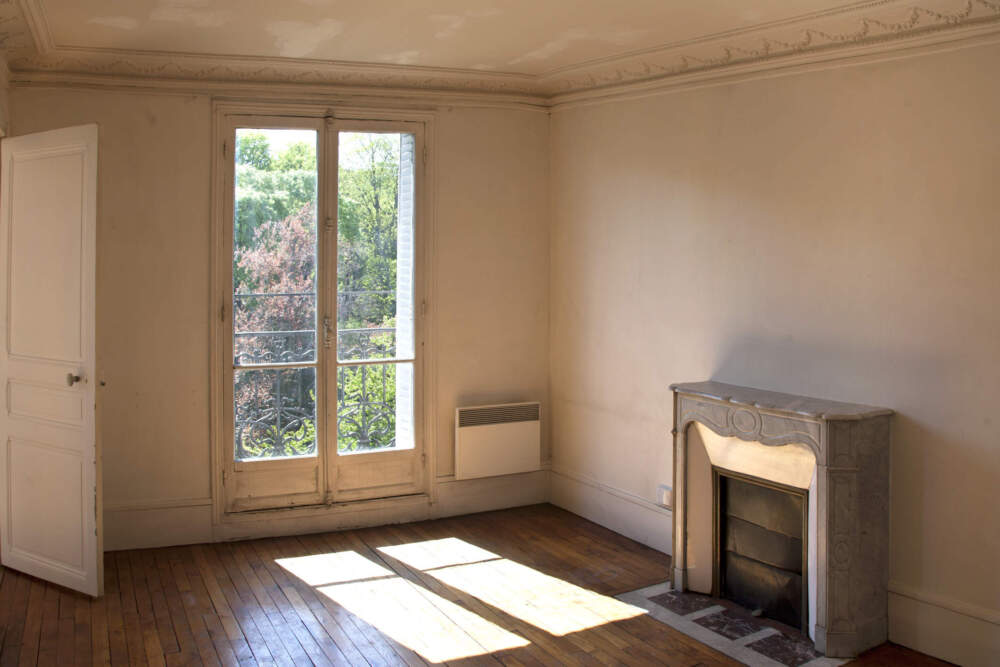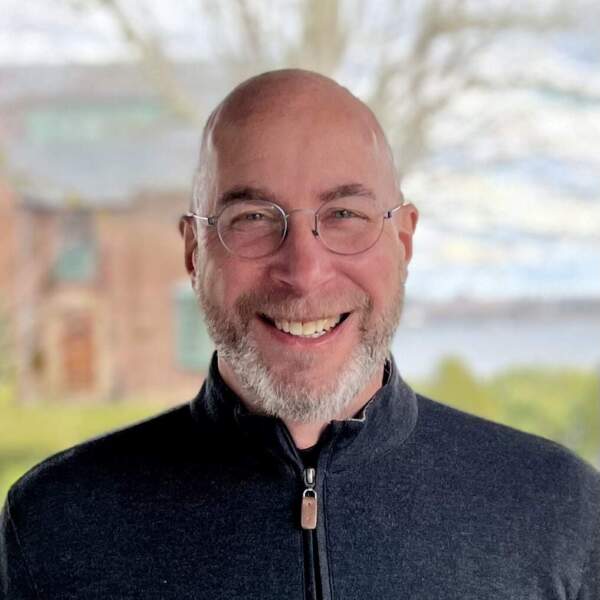Advertisement
Commentary
In my parents’ empty house, I finally found the space to grieve

The table that had been just inside the front door is gone when I enter my parents' house. Gone too are the bunches of keys, boxes of insulin syringes, stacks of bills, and photos of the kindergarteners my mother taught. Pushing through the front door of the now-empty house, I am shocked by the emptiness.
My sister and I had already moved my mom’s teaching awards and the “best teacher” tokens gifted to her by the grateful parents of her students to her new home, a wonderful assisted living facility a mile down the road from here. We didn’t want her to forget the beloved career she had before dementia set in.
We didn’t want her to have to leave her home either, but there came a time when our father could no longer care for her — that much was clear. He angrily disagreed. We did it anyway. After all, he could barely care for himself: She thrived in assisted living, regaining her strength and her glow. Six months later, surprisingly but not unexpectedly, he died.
As I wander the house one last time, I breathe in all that’s missing.
When my parents moved to this house 20 years ago, my sister and I had already started families far from New York. Gradually my parents’ friends retired to warmer climates or more celestial resting places. Then, my parents became pandemic recluses.
My mother, a tightly controlled diabetic who once checked her blood sugars so often that I feared she’d need a blood transfusion, landed in the hospital repeatedly with erratic blood sugars. Her dementia wasn’t obvious over Zoom, but when we spent time with her, her decline was painfully recognizable. And the debate over whether my father didn’t see it, or willfully hid it from us, further strained our relationship.
As I wander the house one last time, I breathe in all that’s missing. Gone is the sea of my father’s blurry photographs and collages of our families, fractals of love and pride. He connected with us through Photoshop when his increasingly stubborn and antagonistic personality made real-life connection difficult.
For a long time, my dad refused the assistance necessary to keep him and my mom living independently. And he doubled down when he was on his own. When we expressed concerned about his instability, he yelled at us. His two adult children, with a combined 60 years of emergency medicine experience, didn’t know what we were talking about. And then he fell and broke his fibula, but refused to go into rehab from the hospital. I drove to New York to explain why the trauma team, the nurses, and the physical therapists felt he needed time to get stronger before going home. “They don’t know me,” he yelled.
Advertisement
Eventually he caved, and was soon shipped to rehab and eventually, a lower level of care at the same assisted living facility where our mother lives. But soon after, another fall snapped his hip. He came through surgery well, but he never walked again. Two weeks later, I received a call from a New York number — an ER doctor. Reading his nervousness, I asked, “Are you calling to tell me my father’s dead?”
After the funeral, we knew what awaited us. When my parents moved from my childhood home to this two-level house, my dad didn’t throw out a single thing — he just moved it all. For years, we begged him to throw stuff out, to get things in order. They have meaning, he insisted. “They’re important to me.”
But my sister and I couldn’t find meaning in 30-year-old bills, a Windows 95 operating manual, the 13 urine cups sealed in their packages, or enough Band-Aids to treat the entire U.S. military.
Gone are the anger and frustration, the old grievances and petty fights that ultimately pushed us apart. In their place is regret — regret for the visits I didn’t make and the relationship I wanted to have, but couldn’t.
My mother, who had been a force as a public school teacher, grew tired of fighting this battle with him. And, the resistance he erected during his life became a barrier to our grief after he died.
The small dining room, emptied of the breakfront, chairs, and solid oak table, somehow looks smaller. I still see the table, though, but in its glory during my childhood. Filled with friends and family who stopped by for laughter, coffee, my mother’s chocolate chip cookies and lemon cakes, and my father’s awkward jokes. There was a deckled charm to his edges back then. I recognize how the role of that table shifted in this house, slowly becoming a bearer of burdens – piles of mail, handbags, the unopened box of water pitchers we sent because they never drank enough and a sea of scattered pill bottles that my father argued wasn’t disorganized, but part of his “system.”
I make one final pass up the too-steep stairs. I crouch on the floor with my back to the wall where an ornamental Persian rug once hung. It had also been featured prominently in the home where I grew up. But after my parents were gone, an antiques expert quickly disavowed us of the illusion of great value that was once a source of pride to a frugal engineer and teacher.
I don’t know if it was the site of the bare wall or the feel of it through my hoodie, but the shock of that emptiness takes a recognizable shape. And I’m hit with the full weight of my loss for the first time. All of it. My mom’s dementia. My dad’s death. I’m surprised by the cry that takes hold. It’s a hardy cry— far from the dignified tears I shed at his funeral.
Gone are the anger and frustration, the old grievances and petty fights that ultimately pushed us apart. In their place is regret — regret for the visits I didn’t make and the relationship I wanted to have, but couldn’t.
I cry for the six-year-old, waiting for his dad to come home from work as an aerospace engineer to add to their loose-leaf binder filled with clips from the Apollo 11 moon landing. I don’t know what was more magical — humans on the moon or this time with my dad. Using Magic Marker, I listed us as co-authors — that, I now realize, was my first “book.”
I cry because the tragedy of all the pots and pans stacked in the oven wasn’t the fire hazard they posed, but an indication that my mother stopped cooking as dementia chipped away at the recipes she kept only in her head. And I, a physician and her son, missed it.
I cry because this house, this entire community sits on the property where I watched outdoor movies as a young kid. I sat in the back of the family’s Dodge station wagon with my younger sister and we pummeled one another with pillows. Later, the smackdowns with our father drove me away. Distance as emotional self-defense meant I took my eye off my mother and father.
I cry because I could’ve been more sensitive and empathic to my father’s troubles as my mother’s caregiver and to the decline of his ailing body, and because I miss having him around to be mad at. I cry for my stubbornness and all the unfulfilled possibilities I can see now that all the clutter is gone.
